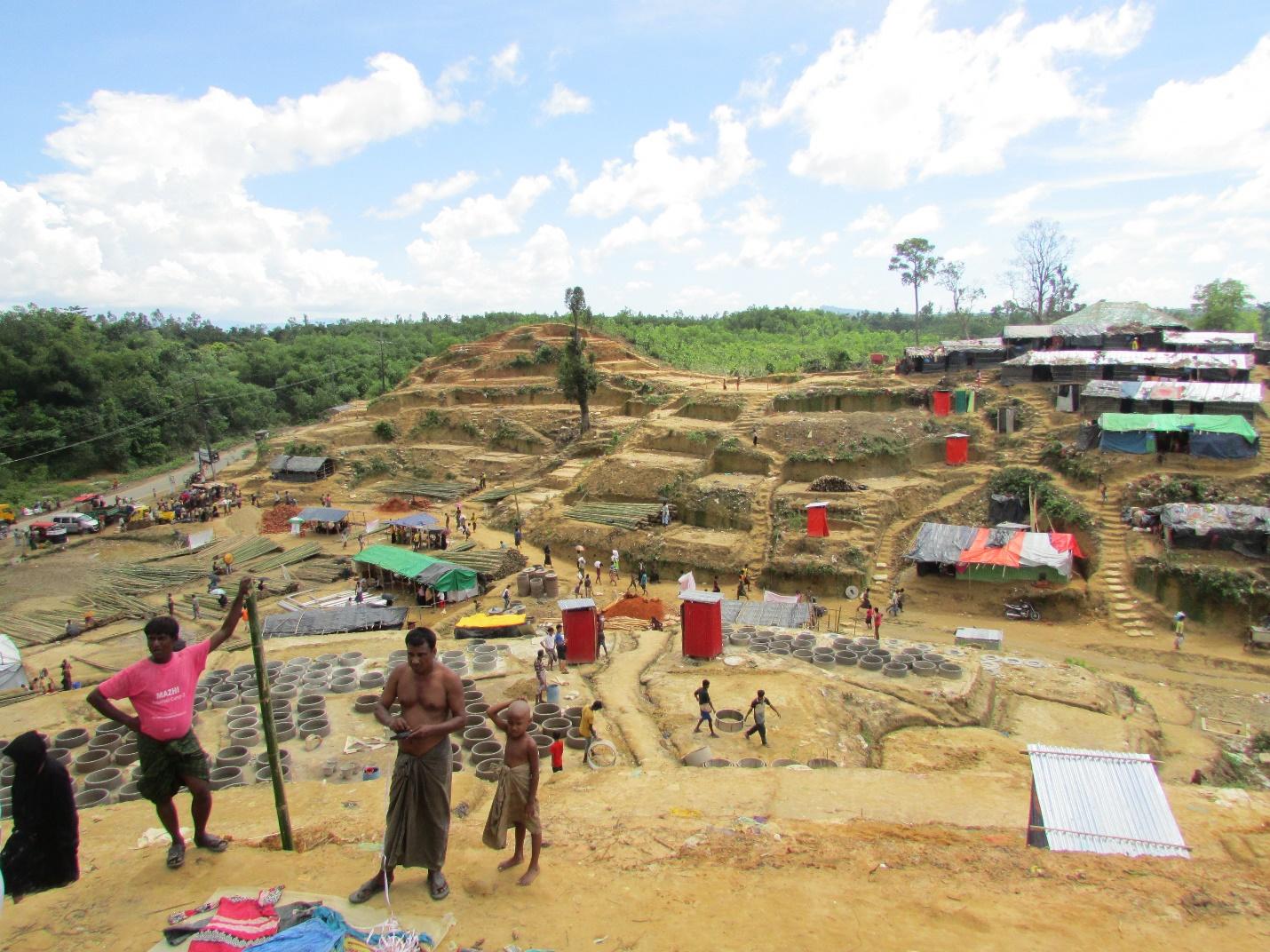-
The Rohingya Refugee Crisis: Photos Show Bangladesh Camps Are Vulnerable to Impending Monsoons
March 28, 2018 By Saleh AhmedIn late 2017, I visited the several Rohingya refugee camps (Leda, Mainner Ghona, & Kutupalong-Balukhali Makeshift Settlements) in Ukhia Upazila (Cox’s Bazar District), Bangladesh. These camps are home to more than a million refugees escaping ethnic violence in Myanmar.
The camps’ residents are crowded into hilly areas with almost no facilities.
Previously, these hills were covered with trees.
To build the camps, stairs and terraces were cut into the hillsides.
These temporary shelters have almost no drainage or sewerage.
Refugees cut trees for fuelwood for cooking and other household needs.
Across the river, in Myanmar, burnt trees are visible. On this side of the border in Bangladesh, laborers work to raise the embankment to protect the local farmlands from high tides, riverbank erosion, and cyclones in the Bay of Bengal.
But despite these efforts, it is clear that these temporary houses will be vulnerable to the coming monsoons—and throughout the year.
Saleh Ahmed is a Ph.D. candidate in Arid Lands Resource Sciences (minor in Global Change) at the University of Arizona and conducting research on human dimensions of global environmental change. For further information, please contact: ahmeds@email.arizona.edu.
Photo Credits: All photos were provided by Saleh Ahmed and cannot be reused without his permission.
Topics: development, environment, extreme weather, Eye On, featured, Guest Contributor, media, migration
 A Publication of the Stimson Center.
A Publication of the Stimson Center.











